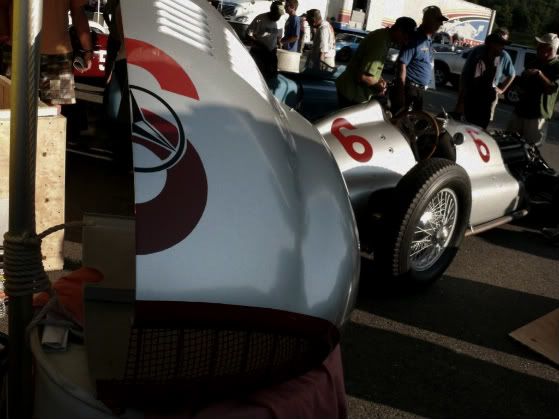You are using an out of date browser. It may not display this or other websites correctly.
You should upgrade or use an alternative browser.
You should upgrade or use an alternative browser.
🔷 Open Thread
- Thread starter statler
- Start date
Lurker
Senior Member
- Joined
- Jun 13, 2006
- Messages
- 2,362
- Reaction score
- 0
http://www.youtube.com/watch?v=4qsWFFuYZYI&feature=player_embedded
It would have been so much better if it featured the Konami code.
It would have been so much better if it featured the Konami code.
JohnAKeith
Senior Member
- Joined
- Dec 24, 2008
- Messages
- 4,337
- Reaction score
- 82
All those photos taken on camera phones out car windows made me think of Earthquake, the movie, for some reason.
This sequence is awesome! I wish I had been able to see it in Surround Sound.
http://www.youtube.com/watch?v=ssEQDTGKn8E
This sequence is awesome! I wish I had been able to see it in Surround Sound.
http://www.youtube.com/watch?v=ssEQDTGKn8E
JohnAKeith
Senior Member
- Joined
- Dec 24, 2008
- Messages
- 4,337
- Reaction score
- 82
Here is the trailer to The Surrogates, the new movie opening next weekend that was filmed in Boston (some of it).
I love the use of Boston locales.
I think this might end up being the first "successful" movie made in Boston during the past couple of years during the film credit program. No, "The Women" and "Best Friend's Girl" were not successes.
http://www.youtube.com/watch?v=jwTJ7mCcFoY
I love the use of Boston locales.
I think this might end up being the first "successful" movie made in Boston during the past couple of years during the film credit program. No, "The Women" and "Best Friend's Girl" were not successes.
http://www.youtube.com/watch?v=jwTJ7mCcFoY
bosdevelopment
Active Member
- Joined
- May 26, 2006
- Messages
- 727
- Reaction score
- 2
How many times was the word "surrogate" used in that trailer.
czsz
Senior Member
- Joined
- Jan 12, 2007
- Messages
- 6,043
- Reaction score
- 7
I think this might end up being the first "successful" movie made in Boston during the past couple of years during the film credit program.
Do "Gone Baby Gone" or "Knowing" count?
JohnAKeith
Senior Member
- Joined
- Dec 24, 2008
- Messages
- 4,337
- Reaction score
- 82
What the f- is "Knowing"??
czsz
Senior Member
- Joined
- Jan 12, 2007
- Messages
- 6,043
- Reaction score
- 7
It was a thriller starring Nicholas Cage as an MIT prof who discovers some kind of mathematical code behind the occurrence of natural disasters, I think.
I didn't see it and you don't know what it is, so I guess it wasn't exactly successful...
EDIT: Shit, my bad, it was filmed in Melbourne but set in Boston. But they also did some filming in Westford, for some reason.
I didn't see it and you don't know what it is, so I guess it wasn't exactly successful...
EDIT: Shit, my bad, it was filmed in Melbourne but set in Boston. But they also did some filming in Westford, for some reason.
C
Chessplayer
Guest
"21" was a commercial success.
statler
Senior Member
- Joined
- May 25, 2006
- Messages
- 7,939
- Reaction score
- 547
New York, Then & Now via Ghostbusters.
I was thinking of a based-in-Boston movie equivalent, but there really weren't a lot movies filmed here pre-late nineties.
I was thinking of a based-in-Boston movie equivalent, but there really weren't a lot movies filmed here pre-late nineties.
underground
Senior Member
- Joined
- Jun 20, 2007
- Messages
- 2,390
- Reaction score
- 3
Or Friends of Eddie Coyle. I watched it a few times recently and there are a lot of good "Then and Nows."
Beton Brut
Senior Member
- Joined
- May 25, 2006
- Messages
- 4,382
- Reaction score
- 338
statler
Senior Member
- Joined
- May 25, 2006
- Messages
- 7,939
- Reaction score
- 547
This is a small snippet from a larger essay from Douglas Adams. It is actually just a small illustration of a much larger point he was making but I thought I would post it here because it brings up a good point about both architecture and indirectly, urban design.
Douglas Adams said:[FONT=Arial,Geneva,Helvetica,sans-serif] I want to talk about Feng Shui, which is something I know very little about, but there's been a lot of talk about it recently in terms of figuring out how a building should be designed, built, situated, decorated and so on. Apparently, we need to think about the building being inhabited by dragons and look at it in terms of how a dragon would move around it. So, if a dragon wouldn't be happy in the house, you have to put a red fish bowl here or a window there. This sounds like complete and utter nonsense, because anything involving dragons must be nonsense - there aren't any dragons, so any theory based on how dragons behave is nonsense. What are these silly people doing, imagining that dragons can tell you how to build your house? Nevertheless, it occurs to me if you disregard for a moment the explanation that's actually offered for it, it may be there is something interesting going on that goes like this: we all know from buildings that we've lived in, worked in, been in or stayed in, that some are more comfortable, more pleasant and more agreeable to live in than others. We haven't had a real way of quantifying this, but in this century we've had an awful lot of architects who think they know how to do it, so we've had the horrible idea of the house as a machine for living in, we've had Mies van der Roe and others putting up glass stumps and strangely shaped things that are supposed to form some theory or other. It's all carefully engineered, but nonetheless, their buildings are not actually very nice to live in. An awful lot of theory has been poured into this, but if you sit and work with an architect (and I've been through that stressful time, as I'm sure a lot of people have) then when you are trying to figure out how a room should work you're trying to integrate all kinds of things about lighting, about angles, about how people move and how people live - and an awful lot of other things you don't know about that get left out. You don't know what importance to attach to one thing or another; you're trying to, very consciously, figure out something when you haven't really got much of a clue, but there's this theory and that theory, this bit of engineering practice and that bit of architectural practice; you don't really know what to make of them. Compare that to somebody who tosses a cricket ball at you. You can sit and watch it and say, 'It's going at 17 degrees'; start to work it out on paper, do some calculus, etc. and about a week after the ball's whizzed past you, you may have figured out where it's going to be and how to catch it. On the other hand, you can simply put your hand out and let the ball drop into it, because we have all kinds of faculties built into us, just below the conscious level, able to do all kinds of complex integrations of all kinds of complex phenomena which therefore enables us to say, 'Oh look, there's a ball coming; catch it!'
[/FONT][FONT=Arial,Geneva,Helvetica,sans-serif]What I'm suggesting is that Feng Shui and an awful lot of other things are precisely of that kind of problem. There are all sorts of things we know how to do, but don't necessarily know what we do, we just do them. Go back to the issue of how you figure out how a room or a house should be designed and instead of going through all the business of trying to work out the angles and trying to digest which genuine architectural principles you may want to take out of what may be a passing architectural fad, just ask yourself, 'how would a dragon live here?' We are used to thinking in terms of organic creatures; an organic creature may consist of an enormous complexity of all sorts of different variables that are beyond our ability to resolve but we know how organic creatures live. We've never seen a dragon but we've all got an idea of what a dragon is like, so we can say, 'Well if a dragon went through here, he'd get stuck just here and a little bit cross over there because he couldn't see that and he'd wave his tail and knock that vase over'. You figure out how the dragon's going to be happy here and lo and behold! you've suddenly got a place that makes sense for other organic creatures, such as ourselves, to live in. [/FONT]
JohnAKeith
Senior Member
- Joined
- Dec 24, 2008
- Messages
- 4,337
- Reaction score
- 82
Banacek opening:
http://www.youtube.com/watch?v=b4ReSTFDAHU
I believe the original TV movie was filmed in Boston - I remember seeing it re-run at some point and it had lots of local scenes. Can't find it on YouTube, though.
http://www.youtube.com/watch?v=b4ReSTFDAHU
I believe the original TV movie was filmed in Boston - I remember seeing it re-run at some point and it had lots of local scenes. Can't find it on YouTube, though.









